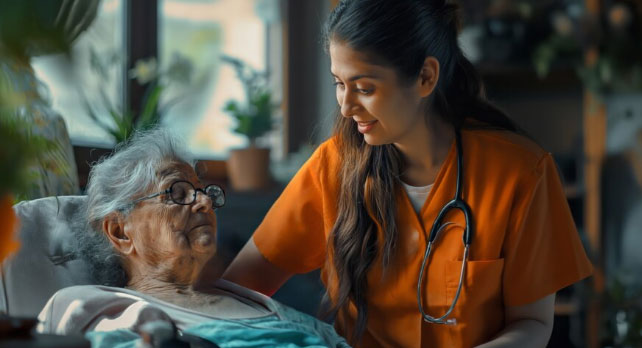
One of the levels of hospice care that is covered by Medicare is respite care. If you have a loved one in hospice, and you request respite care, Medicare will cover up to five days. During that time, the hospice staff will take over your primary caregiver duties so that you can take a break. Your loved one will stay in a skilled nursing facility or hospital until you are back from your respite.
There are many possible ways you can use respite care. Let’s go over some of the most common ways to use this Medicare-covered break. You may come up with additional ways to use respite care as well.
- Treating your own physical health: As a caregiver, you are not immune from sickness, injury, or other acute or chronic health conditions. Respite care can give you a few days to treat and manage your own health conditions without worrying about providing care for your loved one.
- Catching up with estate planning: If you are in charge of your loved one’s estate, there is a lot to figure out and handle in terms of property, finances, inheritance, and so forth. You also need to manage the logistical aspects of your loved one’s care, since they have entrusted you with that duty as well. You may sometimes need a few days to catch up on all of the associated tasks.
- Catching up on other obligations: When a loved one is reaching the end of life, it feels like life should pause for a while for us, but it doesn’t. Your other obligations continue. Respite care can give you some time and opportunity to catch up with them.
- Spending time with other loved ones: While caring for your loved one in hospice, you will be spending a lot of time with them. But that can take you away from the time you would normally be able to spend with other family and friends. Respite care can give you some time to plan activities with your other loved ones so you can keep those relationships strong.
- Reconnecting with yourself: A caregiver’s relationship with themselves can also fall by the wayside when caring for another daily. It may help you prevent burnout and retain a strong core identity to take a few days off to simply participate in activities you enjoy.
- Resting and recovering: Finally, respite care is designed in part to help caregivers prevent or treat burnout. It is often a good idea to simply use respite days to rest and restore your energy and motivation.
Learn More About All the Levels of Hospice Care
Journey Palliative and Hospice understands that while your loved one needs support, you do as well as their caregiver. To learn more about respite care as well as the other levels of care we provide, please give us a call at (818) 748-3427. We are based in Burbank, and provide hospice services throughout the area.


